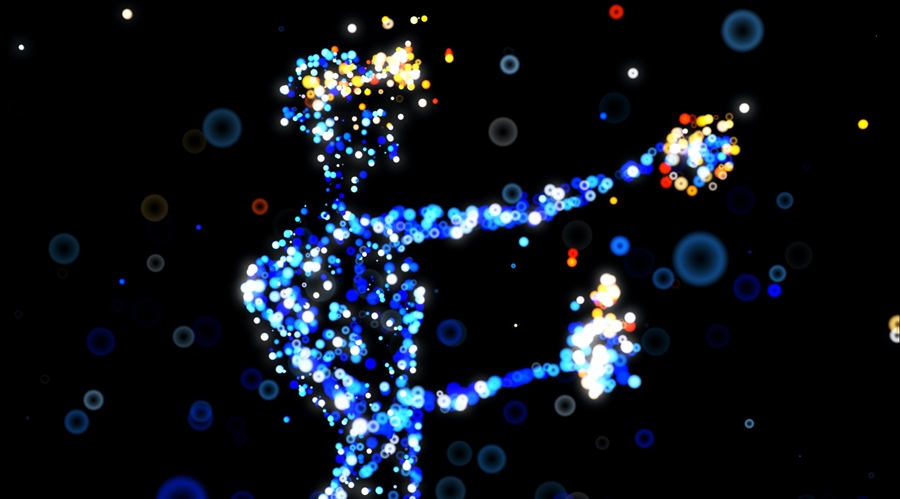Do you remember way back, when was it… about three months ago, when everyone was talking about the metaverse? Hype cycles come and go so intensely now, that it might seem longer has passed. There was a spike of interest, crypto tokens in any way perceived as being metaverse or blockchain -gaming related experienced a temporary surge in price, and then there was a lull and a shift of focus.
One of the characteristics of anything crypto-related is that the space moves so fast, and is powered by such extreme levels of FOMO and panic, that it is easy to get washed along from story to story and forget about the big moves, the really fundamental changes, that are happening in the background.
Check in with the builders and engineers though, and the construction of a metaverse, or several metaverses, tied in with DeFi and blockchain-powered gaming worlds, continues at pace, sucking in funds, talent and creative thinking.
New Social Networks
Metaverses could realistically, this decade, become the new social networks, absorbing and taking over the online networks in which so many of us now spend significant chunks of our time and attention. In fact, the centralized, web2 social networks we use now already function as the beginnings of a crude metaverse, particularly for heavier users.
Anyone who has ever become addicted to Twitter (journalists and NFT degens come to mind) will have a good idea of how immersive and consuming even a flat, restrictive, mainly text-based experience such as Twitter can become. On social media, battles are waged, careers develop, alliances take shape and, sometimes, what happens online begins to leak out and restructure the physical world.
Flawed Environments
As a user, you adapt to social media’s formats and inner-workings. Pessimistically speaking, it can shape you for the worse, as you are forced to make your interactions less human in order to conform to the application’s artificial interior dimensions. It is not unusual to witness anonymous accounts losing any pretense at decency or restraint as they take swipes at other anonymous accounts, resulting in a mutual net loss for participants, and a cynical win for the platform.
But, no matter the damage done, the social media juggernaut rolls on, loading on board everything from light entertainment to political activism, psy-ops and propaganda to networking and influencing, and, all the while, a variety of drawn-out, ever-escalating conflicts. And, it all unfolds within the walls of an artificial, digital environment, viewed and operated through screens and interfaces.
What is that, if not a proto-metaverse? And the ironic thing is, that the most self-assured and mean-spirited dismissals of any recent, metaverse-related tech news tend to be formulated and do the rounds on social media. Or in other words, they come from people who are already deeply locked into partial, early-stage iterations of something resembling a metaverse.
Now, you might look at all of that and think, if social media is a foreshadowing of the metaverse, that doesn’t bode well. And, you might well be right. The documentary/drama film, The Social Dilemma, released in 2020, presented in detail the damage that has been done by social media, and the mechanisms by which it was inflicted, through first-hand, regret-tinged accounts from the very developers who constructed those mechanisms.
So then, what would happen if we amped up that social media dynamic, intensified the immersion and drove users deeper into these flawed, personally-consuming virtual environments?
Isn’t there an argument, with evidence, that social media has driven us all mad? Is the world looking stable and well-adjusted right now? Are we really in a position, individually and as a society, where it would be a good idea to go further along this digital path?
Decentralization is Key
Though, this might be an overly doom-heavy perspective. From a more hopeful point of view, the first thing to note is that we can learn from what we’ve done so far, and avoid making the same mistakes again. This would entail carefully conserving the worthwhile aspects of social media, while dispensing with the bad. Do that, and we could have something preferable to our current online experience.
And, that leads to a key factor, which is decentralization. On web2, power is top-down and non-negotiable, as you, the user, create the content and provide the human energy on which social media relies, while the platforms, or rather those in charge of the platforms, take sole proprietorship of everything you put in, coming in the process to wield excessive amounts of control over arenas which are technically private but have displaced the public.
On web3, and within the decentralized authentic metaverse it can enable, this all changes. In this version of the online experience, power cannot be hoarded, and we each retain continuous real ownership over our online assets, content and identities, without fear of being overruled or kicked out by tech's inner controllers, or by anyone else, for that matter.
Which future version of the web and its applications plays out remains to be seen, but one way to ensure that we steer towards an optimal manifestation is to always favor decentralization. That, after all, is what crypto is all about.























